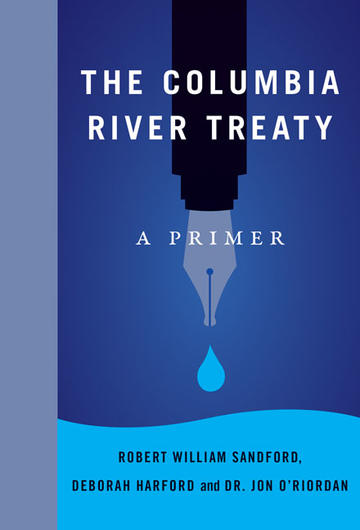About BC Books Online
BC Books Online was created for anyone interested in BC-published books, and with librarians especially in mind. We'd like to make it easy for library staff to learn about books from BC publishers - both new releases and backlist titles - so you can inform your patrons and keep your collections up to date.
Our site features print books and ebooks - both new releases and backlist titles - all of which are available to order through regular trade channels. Browse our subject categories to find books of interest or create and export lists by category to cross-reference with your library's current collection.
A quick tip: When reviewing the "Browse by Category" listings, please note that these are based on standardized BISAC Subject Codes supplied by the books' publishers. You will find additional selections, grouped by theme or region, in our "BC Reading Lists."
The Columbia River Treaty: A Primer is a vital work that clearly explains the nature of this complex water agreement between Canada and the United States and how its impending update will impact communities, landscapes, industry and water supplies between the two countries for many years to come.
The Columbia River Treaty ratification in 1964 created the largest hydropower project in North America, with additional emphasis on flood protection for the USA. As the Treaty approaches its 60th anniversary, and the first opportunity for modification, its signatories are preparing proposals for new ways forward, and stakeholders on both sides of the border are speaking up.
This primer explores the initial intent of the Treaty and its success to date, its costs to Columbia Basin residents and ecosystems, and new influences the signatories must now consider. Shifts in social norms related to the environment, equity and social justice, new views on the relevance of Indigenous traditional and local knowledge, and the economic and physical effects of a changing climate—are all considered as factors in future Treaty governance. The primer concludes with a summary of the perspectives that currently exist between and within each country with respect to Treaty benefits and outlines the next steps that will take place in the negotiation process. The authors conclude with a call to action, in the hope that a renewed Columbia River Treaty might prove a model for outstanding transboundary water agreements around the world as they strive to meet not only the challenges of the present day but also the needs of future generations.
This concise but thorough book informs the reader of the terms of the Columbia River Treaty between Canada and the US. Originally ratified in 1964, when economic growth was the main concern, the Columbia waterway brought prosperity to the regions within its vicinity. However, in the ensuing 50 years much has been learned and values have changed. Chapter 2 highlights the destruction by the dams to plants, animals, First Nations cultures, and farmland. Controlled flooding in BC destroyed homes and lands in order to ensure more favourable conditions in the US. For renegotiation of the treaty in 2024, social environmental and indigenous issues will be fairly represented. Also specific changes are identified in order to cope with the catastrophic effects of climate change.—BC Books for BC Schools



